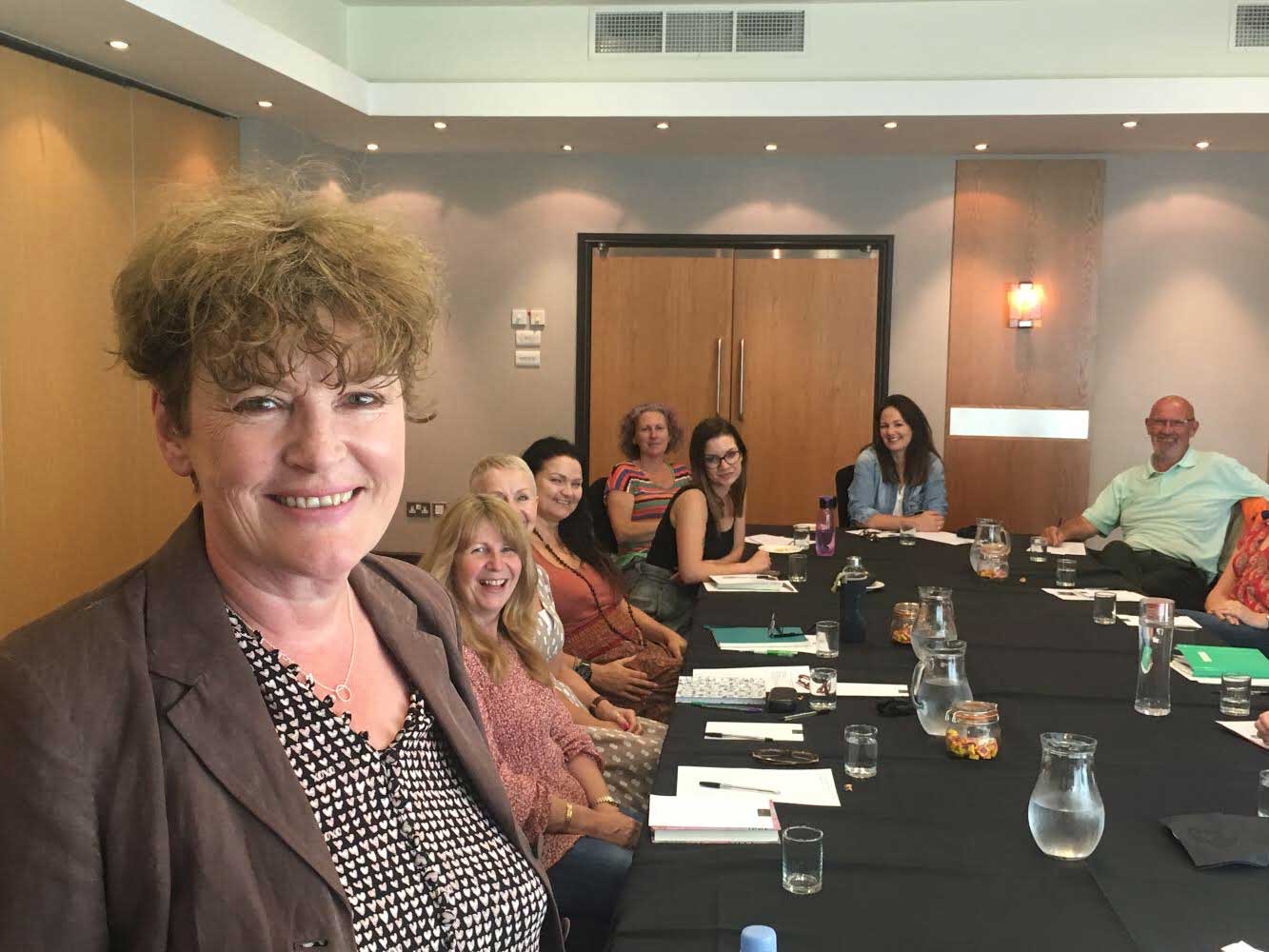Tania A Prince, NLP Trainer and EFT Founding Master
One of the 29 EFT Masters in the world. Get Information on Cutting Edge Techniques. Sign up to courses.

TRAINING COURSES :
- NLP Diploma Training
- NLP Practitioner Training
- EFT Practitioner
- EFT Advanced Practitioner
- EFT Supervision
- Confident Public Speaking
- Public Speaking Skills
- Marketing a Therapy Practice
Tania is a leading therapist and international trainer who specializes in using the most advanced techniques available in the world today to get fast and effective results.
Tania is an EFT Master. She is a fully qualified Hypnotherapist, Psychotherapist and Counselor. She is a Master Practitioner and Trainer of NLP, trained in America, by Gary Craig creator of EFT, and Tad James creator of Timeline Therapy® and a leading NLP Trainer/ author, as well as being trained by Tapas Fleming, (creator of TAT) in England.
She is Internationally recognized as an NLP, Hypnotherapy, EFT and TAT Trainer by all the relevant boards, which includes; The American Board of Neuro-Linguistic Programming; The American Board For Hypnotherapy; as well as the Association For The Advancement Of Meridian Therapy. She is recognized by the UKCP, one of the largest organizations for psychotherapists within the UK as a Hypno-psychotherapist. Tania is also a member of the General Hypnotherapy Register, Affiliate of the Hypnotherapy Research Society and member of the National Register of Hypnotherapists and Psychotherapists.
Tania has a fascinating background. After completing a University degree in Chemistry at Leicester University, she began work as a microbiologist. Whilst at University, she had developed an interest in show business. After completing her degree she worked in show business for ten years. She toured throughout the UK and Europe and appeared on many TV shows.
When Tania left show business she decided to work in an area in which she had always had a great interest. She trained as a Hypno-psychotherapist, and in 1993 started her first therapy practice. She currently practices from two clinics within Cheshire as well as working with clients on the phone. She also supervises the work of other therapists.
Throughout her career Tania has always fully committed herself to being at the front of her field. With that in mind she continually searches out techniques and incorporates them into her practice, ensuring that she provides the best in therapy and training available in the world today.Read Tania A Prince's NLP Articles

Overcoming a Swimming Phobia
- By Tania Prince
- In NLP Hypnotherapy
- March 31, 2020

Public Speaking Tips
- By Tania Prince
- In NLP Hypnotherapy
- March 30, 2020
Watch Tania A Prince MBIR™ DEMO
NLP Gallery




BOOK YOUR MBIR TRAINING COURSE
Step 1
Step 2
Step 3
We Offer NLP Training Courses
With NLP we take the client through a step by step natural process.
NLP Practitioner Training
Intensive ten day training, runthrough the syllabus and standards of the ABNLP.
moreEFT Courses
Cutting edge, intensive EFT Practitioner and Advanced Practitioner Courses.
moreEFT Supervision
Professional supervision in a group environment providing on going support for EFT therapists.
moreNLP Training Courses
EFT COURSES LEVEL 1 and Further Course Prices
We run a number of EFT Training Courses both in the UK and Internationally
ANY FURTHER QUESTIONS on NLP?
Please let me know what you are interested in speaking about, and the best method of contacting you.
